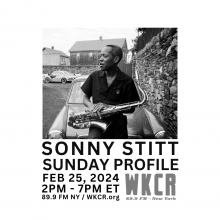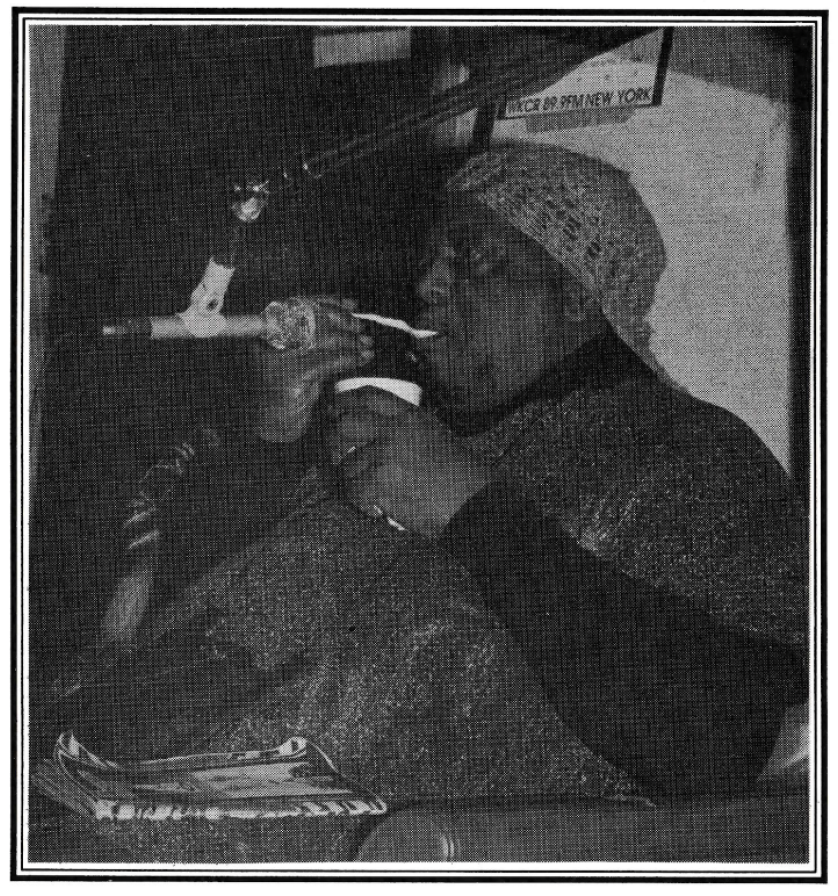
Sid Gribetz presents a five hour radio special featuring saxophonist Sonny Stitt this Sunday, February 25, 2024 from 2-7 PM on WKCR's Profiles.
Stitt was one of the greats. Sonny possessed technical skill and fleet mastery as a musician, and he projected a tone full of warmth and human expression. He excelled whether playing bebop, ballads or the blues, “rhythm” pieces or improvisatory excursions in the American popular songbook standards.
Edward Boatner, Jr. was born February 2, 1924 in Boston. He came from a musical family, as his father was a composer and college music professor, and his mother a piano teacher. Several siblings had careers in classical music. The family moved to Saginaw, Michigan when he was a toddler, and it was there that he was raised. At some point his parents separated and his mother married a man named Robert Stitt. Edward adopted his stepfather’s surname, and the moniker “Sonny”.
Stitt played various instruments from an early age and excelled in school music programs. As a youngster he was attracted to the alto sax and the sound of Johnny Hodges and Benny Carter. As he became a teenager Stitt played in the nascent Michigan jazz scene. After high school, he joined the popular Tiny Bradshaw band. In his travels, Stitt met Charlie Parker in Kansas City in 1943 and became enthralled with Bird’s sound and conception.
As the bebop evolution took hold, Stitt was one of the “Unholy Four” in Billy Eckstine’s legendary bop big band sax section. In 1946, when Dizzy Gillespie left Bird behind in California, he hired Stitt to fill Parker’s chair in both small groups and his orchestra. Between his work with Dizzy and other legendary bebop aggregations, Stitt appears on many of the seminal recordings of the late 1940's. In the early 1950's Stitt teamed with Gene Ammons as a proponent of earthy jazz blowing, and he began playing tenor, and sometimes baritone, sax, while also retaining his original alto.
Termed by critics as a “Lone Wolf”, Stitt had a lengthy career performing in many settings but never his own regular band. Also, for decades he recorded prolifically for many labels, producing a quantitatively amazing discography of artistic fertility, but never a signature “oeuvre”. Among some highlights of later years were organ combos with Don Patterson, experiments with the electric sax during the rock years, a 1960 stay in Miles Davis’s regular group, the Giants of Jazz Tour of the early 1970's, and some mature, critically acclaimed records on the Muse label in the last decade of his life. Stitt died of cancer in 1982 at the age of 58.
Unfairly, Stitt was often criticized as merely “a Charlie Parker imitator”, or with his prolific performance output as someone who “just mailed it in”. Additionally, he was dogged by substance abuse issues, heroin addiction during the bebop years (which he beat) and then alcohol problems, which detracted from an ability to maintain popular fame. But if one listens closely to his recordings, he leaves a worthwhile legacy of touchingly beautiful music.
Given the breadth of Stitt’s output, we will only barely sample his career in our five hour show. But those samples I trust will be a meaningful listen and illustrative of his skill. As a final note, this February 2024 show will be an acknowledgment of his centennial.
